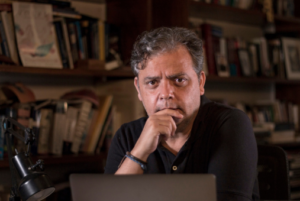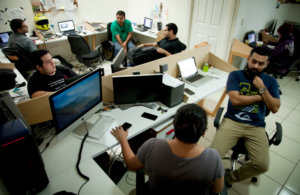“We believe that technology can be, and has often, been a force for good. However, when technology companies put profit over basic human well-being, and facilitate the violation of the human rights of people across the globe, legal accountability is necessary.”
This is at the heart of arguments made last month by civil liberties non-profit Electronic Frontier Foundation (EFF) on behalf of Salvadoran news website El Faro in a suit against Israeli software manufacturer NSO Group.
Pegasus, a spyware developed by NSO, was found on the phones of journalists from El Faro, according to an investigation by Toronto-based Citizen Lab. The journalists filed a complaint in 2022 in federal court in northern California arguing NSO abused services from the California-based Apple, violating U.S. law.
However, after a judge dismissed the suit in March 2024 – and El Faro’s journalists filed an appeal – several outside groups have stepped in to support the news website. Tech companies Microsoft, Google and LinkedIn, as well as media companies and civil liberties groups, including the EFF, The New York Times and the Pulitzer Center, have submitted friend of the court filings in the case.
"We did nothing to obtain these supporting statements," Carlos Dada, director of El Faro and plaintiff in the suit, told LatAm Journalism Review (LJR). “We were very surprised.”

Carlos Dada, director of El Faro and plaintiff in the suit. (Photo: Víctor Peña).
In the documents, the companies ask US Federal Judge James Donato to acknowledge that California is the correct jurisdiction to conduct the trial and that federal laws protecting the right to freedom of the press be respected.
NSO has said that it licenses Pegasus only to government law enforcement and intelligence agencies and terminates contracts with clients who misuse its technology. It also said using its products to monitor journalists “is a severe misuse.”
El Faro is one of the leading independent investigative digital media outlets in El Salvador and Latin America.
Its journalists also have faced threats on social media, judicial harassment and persecution by President Nayib Bukele’s regime. Amid harassment in 2023, El Faro moved its administrative and legal offices to Costa Rica.
Gabriel Labrador, an El Faro journalist and one of the plaintiffs in the suit, explained to LJR that in recent years, due to the spying, El Faro journalists have had to evolve in their approach to journalism and how they interact with technology.
While waiting for the appeal to be accepted and hoping for a favorable ruling, they have taken certain security measures.

El Faro journalists hope that the appeal in the case against NSO Group will be accepted and that they will receive a favorable ruling (Photo: Courtesy).
For example, Labrador said that he has stopped using Google Calendar to schedule interviews with sources, is more cautious about what he discusses on social media, and increasingly uses WhatsApp less for work-related matters.
"We are aware of what it means to be under surveillance, and what matters to us is that people continue to trust us," Labrador said. "Technology is just a tool, and if the tool stops working, we must return to the basics of journalism and, more importantly, protect our sources."
The journalists' lawsuit against NSO was dismissed on the grounds that the United States is not a suitable forum to hear the case and concluded that it would be better if it were examined by a court in Israel or another country.
The companies supporting El Faro argue that it is unlikely NSO will face legal accountability in its home country, Israel. For them, NSO has taken advantage of technology created in the United States, using it as a vehicle for espionage.
"The main argument I find in these briefs is that NSO's activities should not go unpunished because if they are capable of injecting Pegasus through Apple or Android operating systems and technologies, the security of all these companies is also at risk," Dada said.
NSO already has two other lawsuits in California filed by Apple and WhatsApp that have not been dismissed.
“Opening courthouse doors to victims of human rights violations wrought by surveillance technologies would bind companies like NSO Group through judicial liability,” said the Electronic Frontier Foundation.
There doesn't seem to be judicial recourse in El Salvador either. In January 2022, the Association of Journalists of El Salvador (APES) filed a complaint with the Attorney General's Office to investigate the use of Pegasus technology to allegedly spy on more than 32 Salvadoran journalists. They have not received a response.
"The Attorney General's Office is headed by someone very close to President [Nayib] Bukele, and we see a problem of lack of independence," Labrador told LJR. "There has been no indication that the investigation has progressed."
El Faro’s journalists are still betting on an international solution and say they feel in a much better position than they were a few months ago.
"This case has already transcended,” Labrador said. “It is no longer just about El Faro journalists against a company. What is at stake here is freedom of expression, freedom of the press, and, more broadly, democracy.”